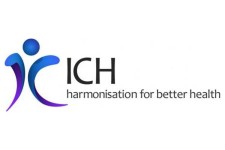International Conference for Harmonisation of Technical Requirements for Pharmaceuticals for Human Use (ICH)

The International Council for Harmonisation of Technical Requirements for Pharmaceuticals for Human Use (ICH) is unique in bringing together the regulatory authorities and pharmaceutical industry to discuss scientific and technical aspects of drug registration. Since its inception in 1990, ICH has gradually evolved, to respond to the increasingly global face of drug development. ICH's mission is to achieve greater harmonisation worldwide to ensure that safe, effective, and high quality medicines are developed and registered in the most resource-efficient manner. Harmonisation is achieved through the development of ICH Guidelines via a process of scientific consensus with regulatory and industry experts working side-by-side. Key to the success of this process is the commitment of the ICH regulators to implement the final Guidelines.
ICH was established as an international non-profit Association under Swiss law on October 23, 2015
The realisation that it was important to have an independent evaluation of medicinal products before they are allowed on the market was reached at different times in different regions. However in many cases the realisation was driven by tragedies, such as that with thalidomide in Europe in the 1960s.
For most countries, whether or not they had initiated product registration controls earlier, the 1960s and 1970s saw a rapid increase in laws, regulations and guidelines for reporting and evaluating the data on safety, quality and efficacy of new medicinal products. The industry, at the time, was becoming more international and seeking new global markets; however the divergence in technical requirements from country to country was such that industry found it necessary to duplicate many time-consuming and expensive test procedures, in order to market new products, internationally.
The urgent need to rationalise and harmonise regulation was impelled by concerns over rising costs of health care, escalation of the cost of R&D and the need to meet the public expectation that there should be a minimum of delay in making safe and efficacious new treatments available to patients in need.
- NGO, CSO or association
- Public health, global health
- Training
- Policy brief or recommendation of good practices

